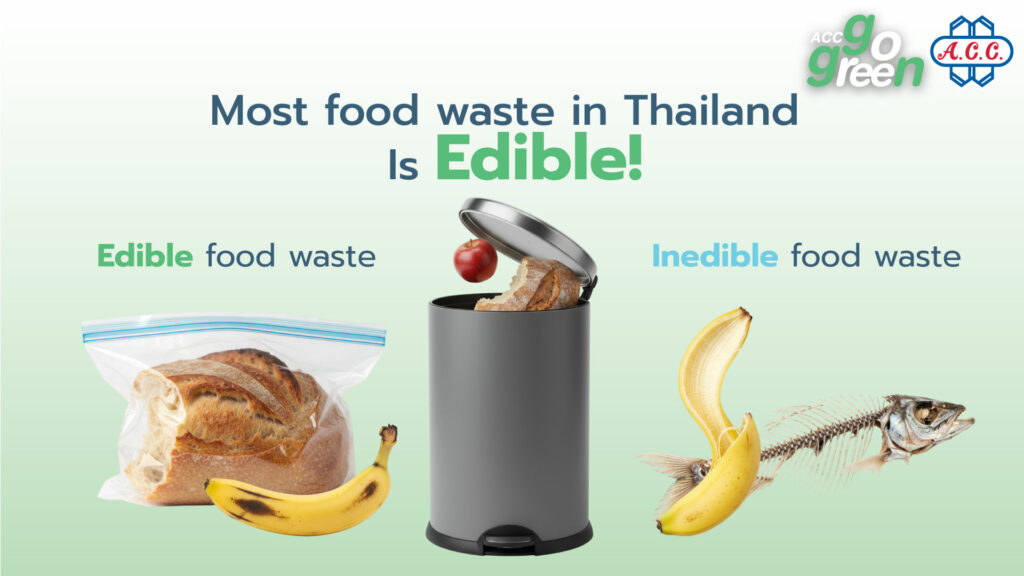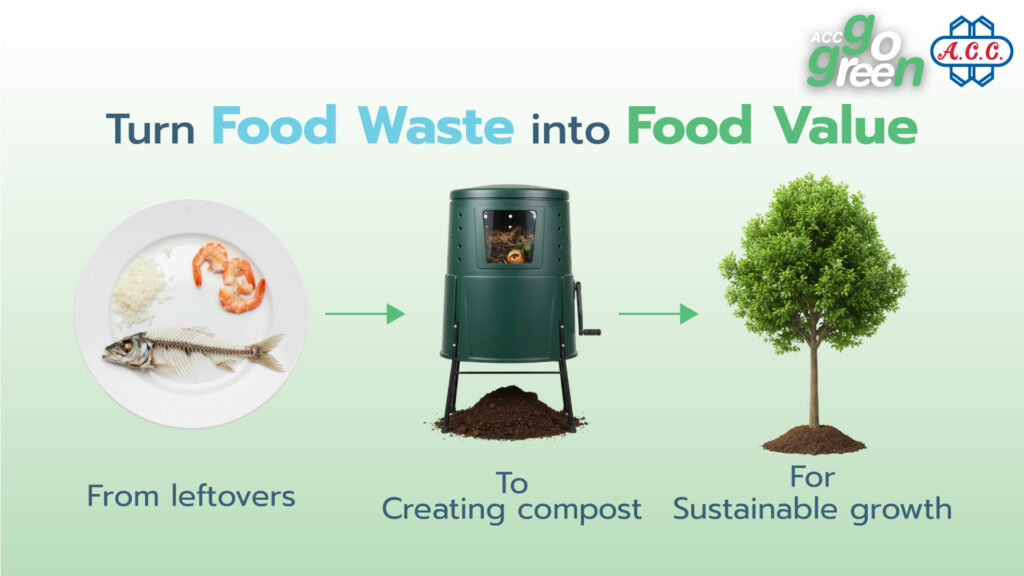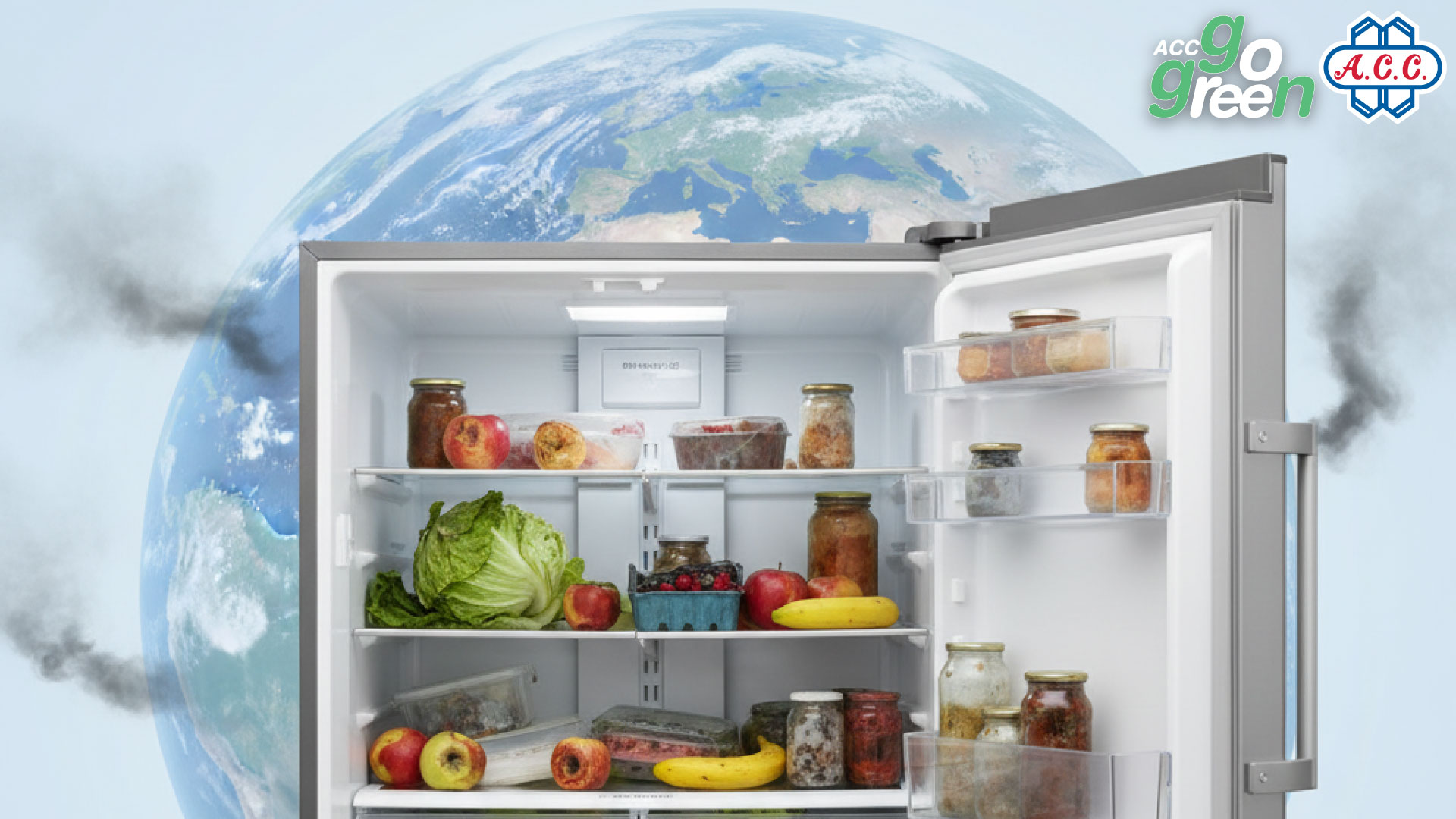Take a look in your kitchen. Do you see any food that’s about to expire or leftover from a meal? Maybe it’s green vegetables you bought for a previous meal but forgot to finish, last night’s curry that no one wants to eat, or even ingredients that have been frozen and forgotten.
These might seem like small issues in our homes, but when you put them all together, food waste becomes a global problem that has a serious impact on the environment and natural resources. This article will help you understand why food waste is such a big deal, and how we can all be a part of solving this problem.
More Than Just Throwing Food Away
Throwing away food doesn’t just mean losing the food itself; it also means wasting all the resources used to produce that food, from the beginning to the end of its journey. Think about what it takes for a single head of cabbage to grow—the land for planting, the water for irrigation, the fertilizer for nourishment, and the energy used for transportation and cold storage. So many resources are used to get food to us, and when that food is thrown away, all those resources are wasted too.
What’s more, one of the most serious effects of food waste is the release of Methane gas, a greenhouse gas that’s 25 times more potent than carbon dioxide. Methane is released from food waste in landfills when it’s broken down by microorganisms in an oxygen-free environment. This methane release is a key driver of Global Warming and Climate Change, leading to widespread impacts like droughts, floods, and rising global temperatures.
Food Waste Categories: More Complex Than You Think
Many people think that food waste is just the scraps left over from a meal. But in reality, food waste can be categorized in many ways based on its source and nature. Understanding these categories can help us manage it more effectively.
∘ Edible Food Waste
This is food that’s still in good condition and safe to eat but is thrown away anyway, such as leftover bread, slightly bruised fruit, or expired food from a supermarket shelf.
∘ Inedible Food Waste
These are parts of food that are naturally inedible, like fruit peels, vegetable stems, or bones.
∘ Food Waste from Production
This is food that is discarded during the production process, such as fruits and vegetables that don’t meet standards for size or appearance.
∘ Household Food Waste
This is food left over from cooking and eating in our daily lives, and it’s the type we are closest to and can manage most easily.
Most of the food waste in Thailand is edible waste from households, which is a huge shame. If we had better management, the amount of waste that ends up in landfills would be drastically reduced.

Getting to know food waste on a deeper level
The Economic Impact: Throwing Away Food is Like Throwing Away Money
In addition to its environmental impact, food waste directly affects our wallets. Every year, people around the world throw away food that is worth a massive amount of money. This is a shocking figure that demonstrates a huge economic loss.
Just think about it: How many times each month do you have to throw away fresh food you bought but didn’t get to eat? Or food you had to toss because it wasn’t stored properly? If you add up these costs over a year, you’ll find that a significant amount of money is being thrown away along with that food. Planning your food purchases and managing them systematically won’t just reduce waste—it will also help you save money on your household expenses. Reducing food waste is a matter of both environmental preservation and personal finance.
The Crisis in Thailand
Thailand is also facing a serious food waste problem. Data from the Pollution Control Department shows that each year, Thailand produces 64% of its total waste as food waste, or about 14 million tons annually. Most of this is sent to landfills, leading to a continuous release of methane gas. These figures are a clear warning sign that if we continue our current consumption and food management behaviors, the problem will only get worse. The rise in population and our fast-paced lifestyles have led many people to rely on ready-to-eat meals and pre-packaged foods, which in turn results in over-buying and more food waste. This lack of knowledge and understanding means that food waste remains a hidden problem, silently eating away at our planet.
Simple Solutions for Your Home
Even though the problem seems huge, everyone can start making a difference from a small starting point: properly managing food waste at home. Here are some simple steps you can take:
∘ Plan Before You Shop and Cook
Before heading to the supermarket, check your fridge and pantry to see what you already have. Make a list of only the things you really need. This helps you buy the right amount and reduces the chance of having leftover food.
∘ Store Food the Right Way
Once you buy food, store it correctly. For example, vegetables should be washed and wrapped in paper before being put in the fridge, some fruits are best stored outside the fridge, and cooked food should be kept in airtight containers to extend its shelf life.
∘ Get Creative with Leftovers
Use your creativity to make new dishes from ingredients that are about to go bad. For instance, soft vegetables can be turned into a soup or a vegetable smoothie, and leftover rice can be used to make fried rice or a savory rice porridge.
∘ Turn Food Scraps into Compost
For scraps that are truly unavoidable, like fruit peels or coffee grounds, you can turn them into compost to nourish your plants at home. This not only helps reduce the amount of waste in landfills but also saves you money on fertilizer. It’s a great way to use resources efficiently. And for those who are serious about composting, there are many methods, like vermicomposting (using worms) or bokashi composting, that can be done easily even in a small space like an apartment.

From food scraps to something valuable
Conclusion
Food waste is a clear example of how a small, daily habit can have a huge impact on the world. Small changes in behavior, like planning your food purchases, managing your food efficiently at home, and composting unavoidable scraps, all help to reduce wasted resources, cut down on greenhouse gas emissions, and lighten the burden on the environment.
Since we are all a part of this world, managing food waste responsibly is not just a personal duty. It’s about creating a big change for our planet’s future, with your own hands.


